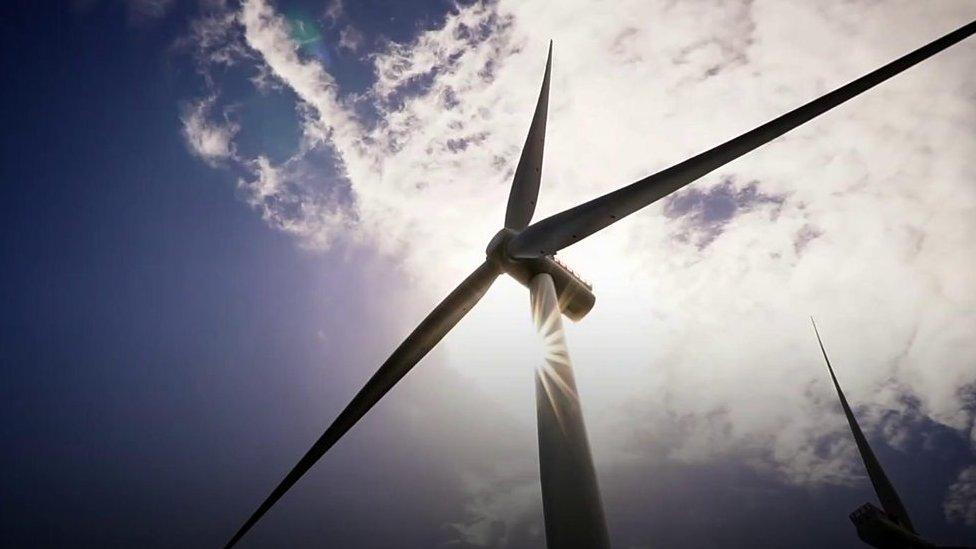Floating wind farms: Site search by survey ship from Swansea
- Published
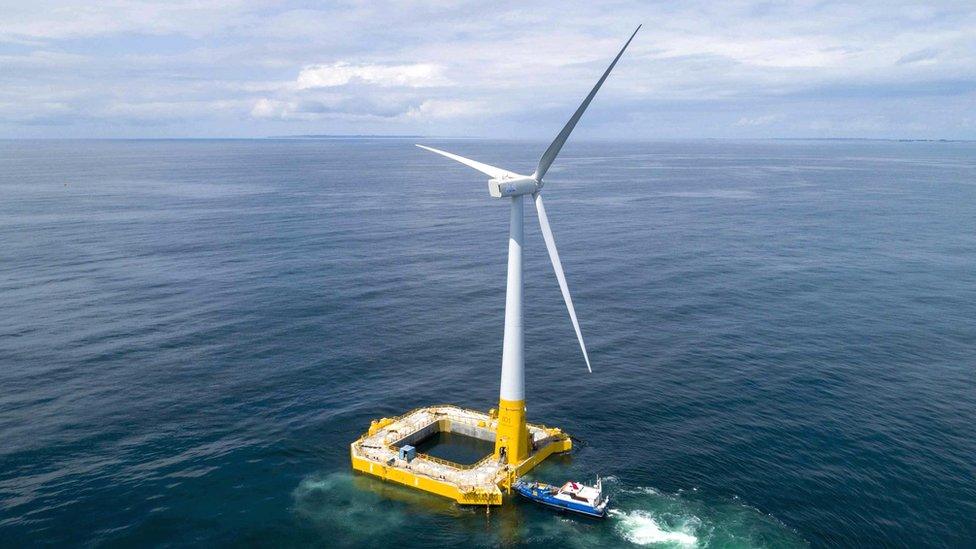
The turbines sit on steel structures and are tethered or anchored to the seabed
A survey vessel has set sail from Swansea docks as part of a project to develop offshore floating wind farms.
The surveys will collect data on both seabed and sub-seabed properties.
The Crown Estate, which belongs to the monarch and is run independently, said data gathered would speed up the process of developing floating wind farms in the Celtic Sea.
The estate will monitor wind and wave patterns and identify marine habitats to understand the best turbine sites.
Until now, most offshore turbines in the UK have been fixed to the seabed.
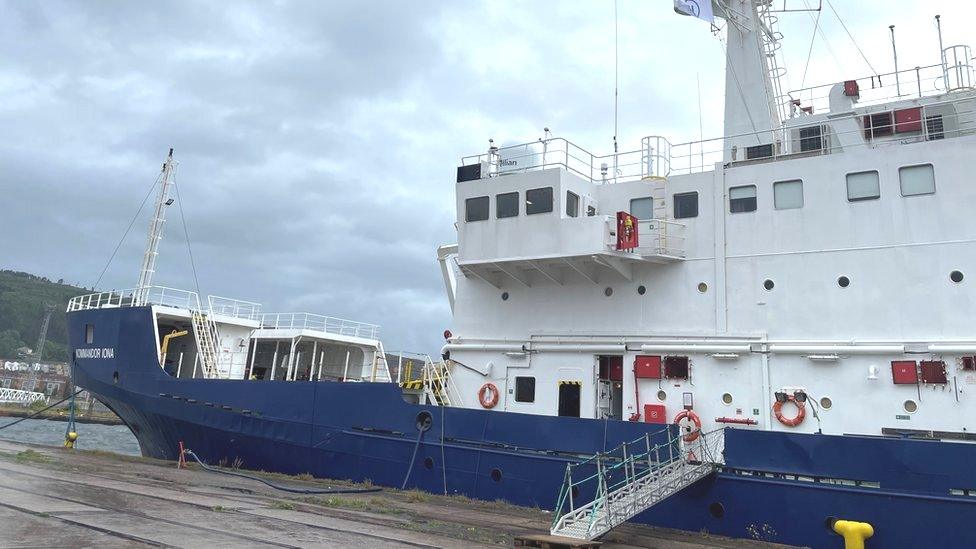
The vessel left on its survey mission from Swansea docks
But floating wind farms can be placed in deeper water where there is often higher wind, such as off Pembrokeshire, and out of sight from land.
The wind turbines are floated on massive steel structures and tethered or anchored to the seabed.
The Celtic Sea is the area of the Atlantic ocean between southern Ireland, south Wales, Cornwall and western Brittany.
Tim Stiven, from the Crown Estate, said launching the first survey in Swansea was "hugely exciting" as developing floating wind farms could create enough energy to power four million homes.
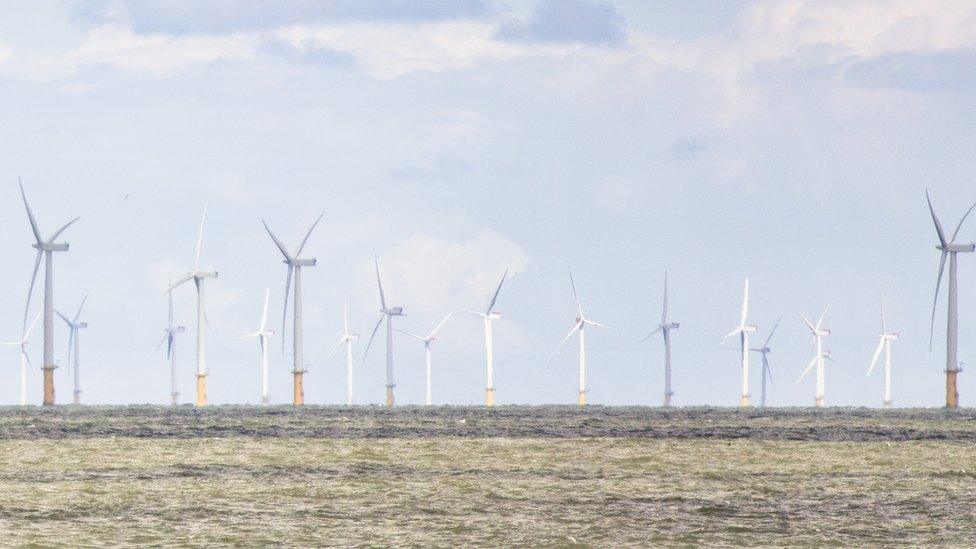
The north Wales coast attracted one of the UK's first commercial offshore wind farms with the North Hoyle development two decades ago
"So much of what we're doing here today is helping to bring those benefits forward as fast as we can," he said.
"Offshore wind is a massive success for the UK as we have seen in north Wales.
"All of the farms that have been built so far are in shallow water, but now we're running out of shallow water.
"So we need to move into deeper waters and these floating turbines will float on structures like mini oil rigs, made of steel or concrete which are anchored to the seabed.
"It allows us to explore much further into UK waters."
The Crown Estate, which owns the seabed around the UK, plans to lease the space to private companies to create the wind farms, and the data gathered by the marine survey will help inform the developers.
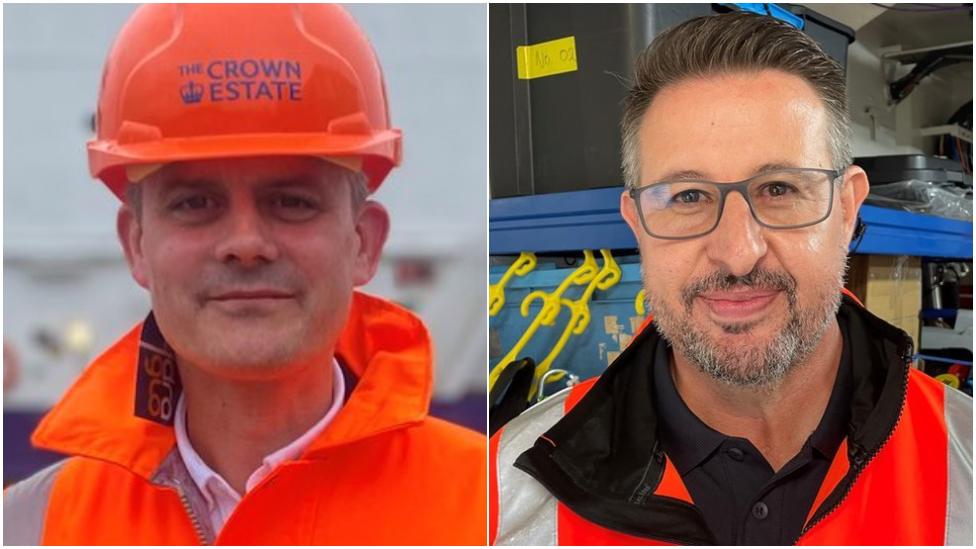
Tim Stiven and Gerard Ferreira are involved in the project
They need permission from the Crown Estate to build the wind farms and normally would conduct the surveys.
"But we're doing it ahead of time so we can give the data to them," said Mr Stiven.
"And that means their development of the project will happen quicker so we can all benefit from the renewable energy and the economic opportunities that come from this new industry."
The survey boat, which has a crew of 30, will spend about 100 days at sea, using specialist equipment to gather geophysical data.Gerard Ferreira, from Fugro UK which specialises in geophysical data, explained how soundwave sensors can determine things like the types of sediment on and beneath the seabed.
He said its survey report would be "vital for our clients so they know how best to develop" any project.
"We show the client what's down there and then they can plan," he added.
- Published20 April 2023
- Published24 March 2023
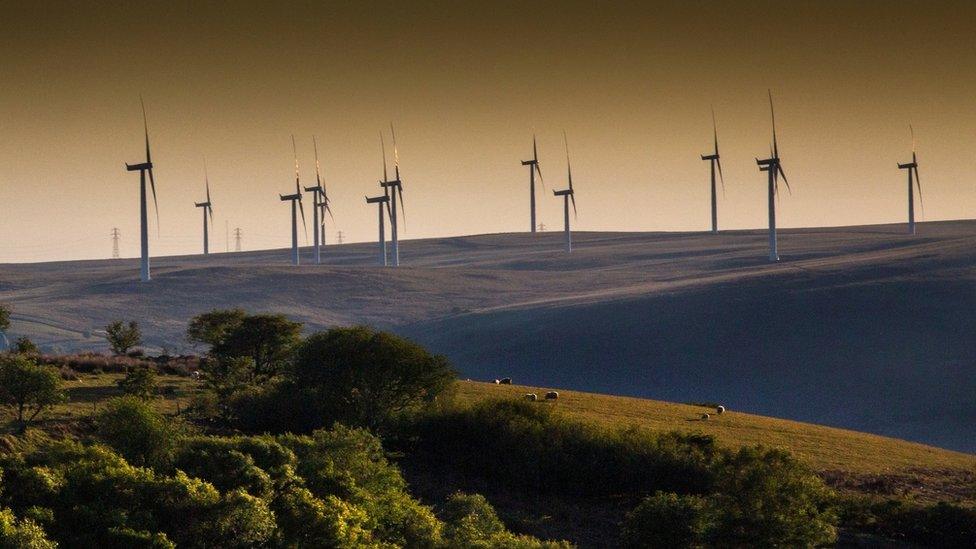
- Published25 January 2023
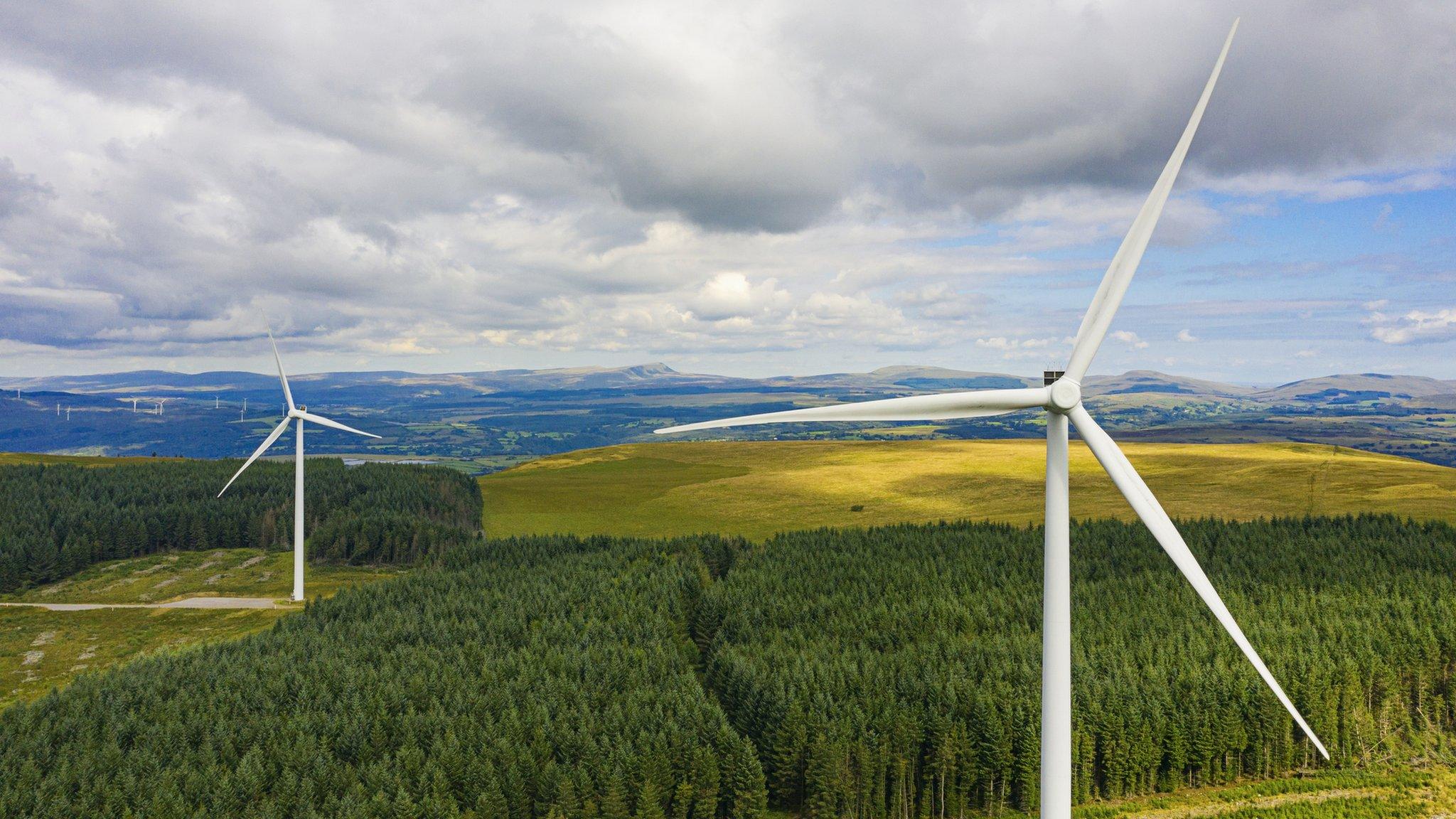
- Published15 November 2020
